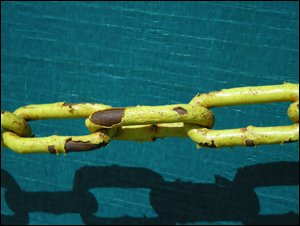 Exchanging links with other webmasters used to be a simple process: You found a site you liked, placed a link to it somewhere on your site, then emailed the site owner asking for a link from his/her site back to yours in return. And quite often they would reciprocate. But it simply doesn’t work that way anymore.
Exchanging links with other webmasters used to be a simple process: You found a site you liked, placed a link to it somewhere on your site, then emailed the site owner asking for a link from his/her site back to yours in return. And quite often they would reciprocate. But it simply doesn’t work that way anymore.
Back in the day, increasing a site’s search engine rankings depended for the most part on getting tons of backlinks pointing to your website, and it really didn’t matter a great deal about the quality or relevance of the links. If you got enough links pointing to your home page Google would reward you with higher search engine rankings.
But as they improved their search ranking algorithm over time, Google began placing less value on the quantity of links and more value on their quality. At the same time they also began devaluing links obtained by swapping links with other webmasters, making working for link exchanges a poor way to spend your valuable time.
To compensate for the lower demand for link exchanges, some unscrupulous webmasters resorted to tricks such as three-way link exchanges (site A links to Site B which links to site C – which then links back to site A). When that trick was discovered and devalued by the search engines, they came up with a new way to entice other webmasters to exchange links with them: offer multiple worthless links in return for one good one! I receive emails every day trying to get me to fall for the scam, and it goes something like this:
Create a ton of blogs on various subjects and populate them with worthless articles, then use them as bait for link exchanges with webmasters who don’t really keep up with the goings on in the SEO world. I received an email earlier today that highlighted the scam quite well. In a nutshell, I was offered three site-wide links on three different blogs with Google PageRanks ranging from 2 to 5 in return for a single link back from this site. I knew it was a scam because I has seen this before, but out of curiosity I visited those three site just to see what my “reciprocal” links would have been worth. And the answer I came away with was “not much”.
All three blogs had a list of links a mile long in each sidebar, and one of the blogs had an even longer list located in the footer. All total, I estimated that there were at least 200 to 300 links on every page of each blog! Now what exactly would a site-wide link on pages like that be worth? You guess it: ZERO!
By now you’re probably guessing that I absolutely HATE link exchanges, but I really don’t. If done properly, they can still boost your search engine rankings and deliver highly targeted traffic to your website. But if done wrong, they can sabotage all the hard work you’re doing to build your site and get traffic to it. Here are a few tips for doing link exchanges the right way:
1 – Don’t place links on your site just to get one back in return. Instead, link to resources that are genuinely valuable to your own site’s visitors, then send the webmaster a short email telling him/her about the link and why you feel that his/her content complements yours. Don’t ask for a link back. Perhaps you’ll get one, perhaps not, but either way your visitors will benefit from the link.
2 – Don’t place your outgoing links on a “links page”, “resources page” or any other page placed online solely to host outgoing links. Instead, place them inside your articles and blog posts in places where they make sense and add true value for the reader.
3 – Link out liberally and many of those links will naturally attract links back on their own. After all, you are publishing content that’s truly worth linking to in its own right, right? If not, why bother?
Regardless of the niche your website might happen to fall into, there are surely plenty of other sites that offer related content that your visitors will find useful. These are the sites that you should link out to. And when you receive some links back, you will reap the fruits of a handful of truly useful “link exchanges”.
About the author: Rick Rouse is the owner of RLROUSE Directory & Informational Resources.
Credits: Photo courtesy of Kathy Belge.